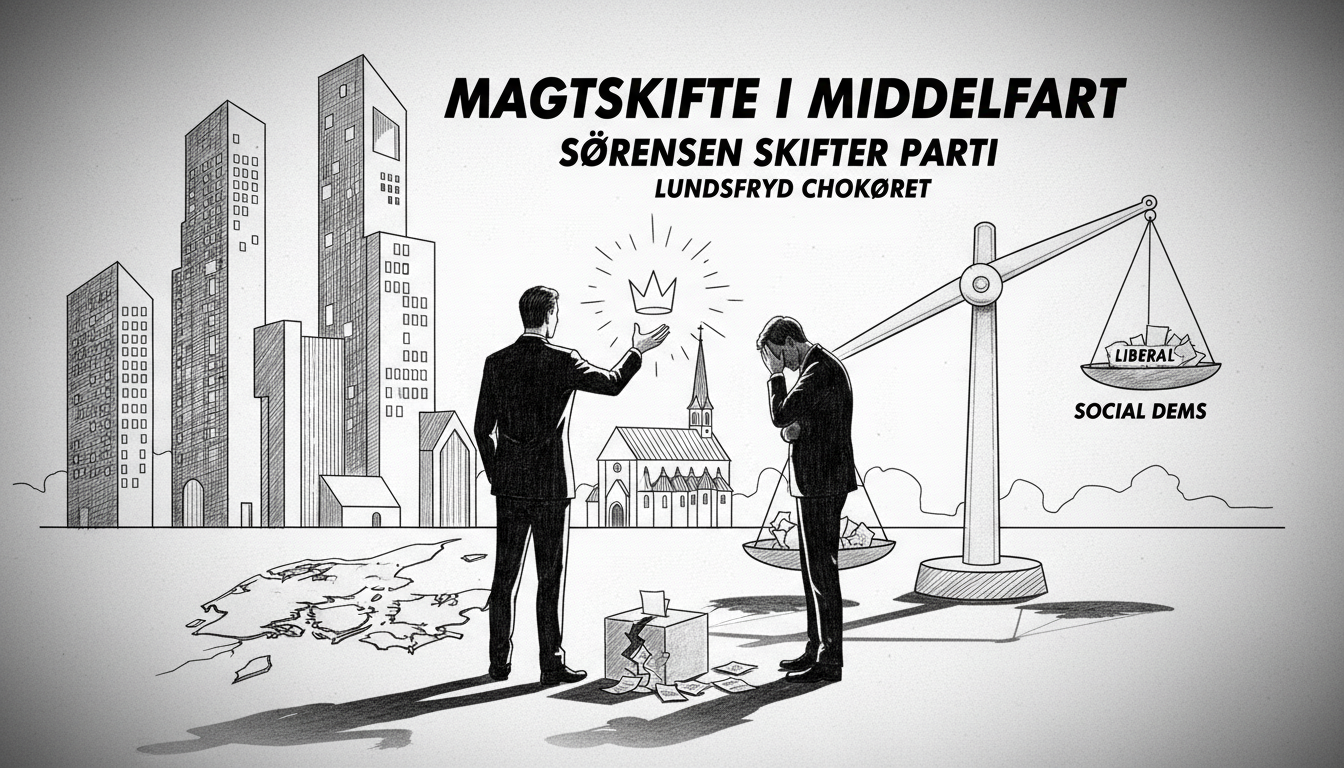The political landscape in Middelfart, Denmark has been upended by a dramatic party switch. Deputy Mayor Ulla Sørensen has left the Social Democrats to join the Liberal Party (Venstre). This move occurred less than 24 hours after municipal elections concluded.
The shift immediately cost the Social Democrats their majority in the city council. It also positioned Sørensen as a potential candidate for the mayor's position. Current Mayor Johannes Lundsfryd expressed profound disappointment about his former colleague's decision.
"Yesterday I was very shocked. And today I am still very shaken," Lundsfryd stated. He described the timing as particularly troubling. "Changing parties for personal gain, less than a day after voters cast their ballots, before we even had a chance to hold a group meeting and discuss the election results - this is the worst thing I've experienced in my political career."
Sørensen received 252 personal votes in the recent election. Her party switch has fundamentally altered the power dynamics in Middelfart's 31-member council. She defended her decision by claiming she possesses unique qualifications to unite the divided council.
"I have been on the city council for eight years," Sørensen explained. "I have a broad foundation regarding my background. And I am the only one who can cooperate with everyone in the council."
When questioned about whether voters supported her party switch, she remained confident. "I can absolutely defend this because I believe I am the right person for the position. I have broad foundations, and I hope the entire council can cooperate."
Political experts note this situation reflects broader trends in Danish local politics. Roger Buch, a municipal researcher at the Danish School of Media and Journalism, called the timing exceptional. "Party switching has become much more normal than before," Buch observed. "But doing it specifically in connection with the formation of the new council - we don't see that very often."
Despite the emotional reactions from both politicians and voters, Buch believes such transitions are becoming inevitable in modern democracy. "This is here to stay. Many people in this election period or in the coming election period will switch parties. We cannot stop this unless we completely change our democracy."
The final council composition won't be formally decided until a meeting in December. Lundsfryd issued a direct appeal to the Liberal Party during ongoing negotiations. "You might succeed, but I have my doubts. You cannot build a castle on quicksand. There comes a day after tomorrow, and you need to be able and willing to do more than just oppose."
He emphasized broader democratic principles beyond personal ambitions. "Think about how democracy and the municipality are bigger than all of us, and they are bigger than personal ambitions. Both Middelfart Municipality and democracy deserve that."
This political crisis in Middelfart reflects increasing volatility in Danish local governance. Party loyalty appears to be weakening as individual politicians make calculated moves that can instantly reshape local power structures. The situation demonstrates how personal ambitions can sometimes override traditional party allegiances in modern Scandinavian politics.
The outcome in December will determine whether Middelfart continues with Social Democratic leadership or sees its first Liberal mayor in recent history. The negotiations happening behind closed doors this week will shape the town's political direction for the next four years.

